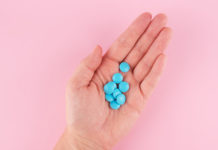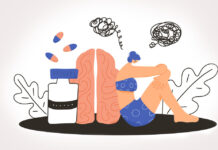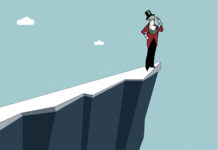Antidepressants, Pregnancy, and Autism: Really Time to Worry
On Monday April 14th, an important new study from Harrington et al was published in the journal Pediatrics (the official journal of the American Academy of Pediatrics.) The study was designed to examine prenatal use of selective serotonin reuptake inhibitors (SSRIs) and the risk of autism spectrum disorders (ASDs) and other developmental delays (DDs). Nine hundred sixty-six mother child pairs were studied and the researchers found that in boys, the association between maternal SSRI use in the first trimester and autism was very strong (OR 3.22). The association between third-trimester maternal SSRI use and developmental delay was even stronger, with an odds ratio of 4.98.
The Bitterest Pills: The Troubling Story of Antipsychotic Drugs
As I see it this website is about filling the gaping hole in the official literature on mental health problems and their treatment. Since these problems were declared to be diseases, ‘just like any other’, academic papers present them as if they were simply technical glitches in the way the brain or mind works. They can be identified by ticking a few boxes, and easily treated by tweaking the corresponding defect with a drug or a few sessions of quick-fix therapy. What it is like to experience these problems and their treatments is nowhere to be found. Yet in post after post on this site among others, we hear about the harm produced by drugs that are prescribed for mental health problems.
David Cohen on Madness Radio: The Meaning of Medications
David Cohen's work begins to address a paradox: medication effects are not simply chemical impacts on a biological brain, but rather the complex interactions of social factors, expectation, placebo, "nocebo," and learning. As a harm reduction approach to withdrawal emphasizes, empowerment may be the most important consideration for supporting people's wellness.
Mental Health Survival Kit, Chapter 4: Withdrawing from Psychiatric Drugs (Part 4)
Psychiatrists have made hundreds of millions of people dependent on psychiatric drugs and yet have done virtually nothing to find out how to help the patients come off them again.
The Temptation of Certainty: David Foster Wallace, Suicide and Psychiatric Drug Withdrawal
While increasing numbers of Americans are being prescribed antidepressants, the Centers for Disease Control reports that suicide rates increased 28% from 1999 to 2010. Trained professionals remain unable to predict who is at risk. Their guess is as good as chance.
We Have Seen the Evidence Base, and it is Us
Anyone who has used benzodiazepines and sleeping pills knows how difficult it is to get off them (worse than heroin!) and how much time it takes to recover. Although there is a lot more helpful information on the web these days, a lot of it is based on anecdotal accounts, personal stories and theories rather than “real” evidence.
Do Antidepressants Worsen the Long-term Course of Depression? Giovanni Fava Pushes the Debate Forward.
In 1994, Italy's Giovanna Fava, editor-in-chief of the journal Psychotherapy and Psychosomatics, wrote for the first time of his concern that "long-term use of...
Things Your Doctor Should Tell You About Antidepressants
The conventional wisdom is that antidepressant medications are effective and safe. However, the scientific literature shows that the conventional wisdom is flawed. While all prescription medications have side effects, antidepressant medications appear to do more harm than good as treatments for depression.
Current Anti-Stigma Campaigns Hinder Withdrawal from Psychotropic Medication
Anti-stigma campaigns reinforce a belief that people with mental health issues must have treatment and thus, push discussion of withdrawal and negative aspects of psychiatric drugs into anonymous spaces.
Long-Term Antipsychotics: Making Sense of the Evidence in the Light of the Dutch Follow-Up...
In the 1950s, when the drugs we now call ‘antipsychotics’ first came along, psychiatrists recognised that they were toxic substances that happened to have the ability to suppress thoughts and emotions without simply putting people to sleep in the way the old sedatives did. The mental restriction the drugs produced was noted to be part of a general state of physical and mental inhibition that at extremes resembled Parkinson’s disease. Early psychiatrists didn’t doubt that this state of neurological suppression was potentially damaging to the brain.
How Long Does Antidepressant Withdrawal Last?
The patient experiencing the pain of withdrawal believed that they would feel better when they stopped taking their antidepressants. After all, they’re under the care of a board-certified medical professional who has vowed to do no harm. But despite those reassurances, they find themselves in a world of hurt.
The Real Benzo Hysteria
On June 12th, Psychology Today published an article entitled, "Benzo Hysteria: the Chilling Effects of the 'Addictive' label," by Ed Shorter, PhD. A dangerous and unfounded claim was made in its final paragraph, which reads as follows: "The benzos are among the safest and most effective drug classes in the history of psychopharmacology." Benzodiazepines are in fact highly addictive and many people suffer for years from protracted withdrawal syndromes that are disabling.
Antidepressants and Pregnancy: Who Says They Are Safe?
Depression during pregnancy is an important issue. Depression should not be ignored and depressed pregnant women deserve good treatment and care. Part of that good care, though, is providing them with full and correct information. I care for pregnant women taking antidepressants on a daily basis and too often they tell me that the only counseling they received about the medication was, “my doctor told me it’s safe in pregnancy.” This post will review the evidence in this area and address the counterarguments.
Out of my Mind. Driven to Drink.
This is an article written by a woman named Anne-Marie. I am publishing it here because it epitomizes what RxISK.org, a company I have founded, is all about. It tells of one woman extraordinarily getting to grips with a problem she has on treatment. My hope is that when RxISK.org is up and running we will be able to make it easier for people like Anne-Marie to engage with their doctors to solve problems like this.
Gradual Reduction is Best For Coming Off Meds: But In All Situations?
The phrase "medication tapering" is being used more and more as the preferred term for the psychiatric medication withdrawal or coming off process. Based on my years of work educating many people around coming off medications -- clients, support groups, and in workshops and trainings -- I think that term is misleading, and let me explain why.
Stopping the Madness: Coming Off Psychiatric Medications
Millions of patients find themselves caught in the web of psychiatric sorcery - a spell cast, hexed, potentially for life. They are told that they have chemical imbalances. They are told that the most important thing they can do for themselves is to "take their medication," and that they will have to do so "for life." Most egregiously, patients are sold the belief that medication is treating their disease rather than inducing a drug effect no different than alcohol or cocaine. That antidepressants and antipsychotics, for example, have effects like sedation or blunting of affect, is not a question. That these effects are reversible after long-term exposure is.
Consent and Psychiatry: Problematizing the Problematic
It is rare to get involved in a dialogue over psychiatry without sooner or later someone defending the use of such “treatments” as ECT “as long as they are consented to,” with the term “informed consent” periodically employed. Herein lies the context for this piece. The issue that I want to probe, to be clear, is not whether force should be used—for of course it shouldn’t—but the thorny issue of consent itself—what exactly constitutes consent and what other issues besides consent are critical to factor in when considering what it is and is not legitimate for a “medical” professional to offer.
A Different Psychiatry Is Needed for Discontinuing Antidepressants
The problems related to the use of antidepressants cannot be solved by an oversimplified psychiatry brainwashed by the pharmaceutical industry.
Envisioning Psychiatric Drug Freedom
Psychiatric meds can shut down the emotions and consciousness enough to make it possible to tolerate dynamics that would inspire rage or surges of empowered activity without the meds. It can be helpful to look closely at these blocks and start to create a map to freedom, understanding that it is a complex process that involves not only the physiology of the body of the individual taking meds, but the architecture of the social system around that person.
The New Yorker Peers into the Psychiatric Abyss… And Loses Its Nerve
The New Yorker's story on Laura Delano and psychiatric drug withdrawal is a glass-half-full story: It addresses a problem in psychiatry and yet hides the deeper story to be told. A story of how her recovery resulted from seeing herself within a counter-narrative that tells of the harm that psychiatry can do.
Benzodiazepine Use and Risk of Alzheimer’s Disease
If a person in mid-life is feeling anxious, or depressed, or can't sleep? No problem. No need to figure out the source of these concerns. No need to work towards solutions in the old time-honored way of our ancestors. Today, psychiatrists have pills. Pop a benzo! And by the way, you'll have a 40% increased risk of Alzheimer's Disease in your late sixties.
Psychiatric Drugs: More Dangerous Than You Ever Imagined (A New Video)
“Psychiatric Drugs are More Dangerous than You Ever Imagined” is the newest video in my series Simple Truths about Psychiatry. It provides a simple, direct and inescapable warning about this epidemic of harm induced by psychiatric drugs. The video sounds a necessary alarm about this growing tragedy, involving millions of people and their families, who never foresaw the disabling results of taking psychiatric drugs and giving them to their children.
Helping People Come Off Medication—Bad for Business?
The message in journal editorials, comments and opinion articles, is that 'this new study shows great promise' and that 'we need further research'. My interpretation is: 'give us the money and we will be happy to carry this out'. With the implied promise that, once this new research has been done, we will get a better world. Sadly this is rarely ever the case.
Benzodiazepines: Dangerous Drugs
When the benzodiazepines were first introduced, it was widely claimed, both by psychiatrists and by pharma, that they were non-addictive. This claim was subsequently abandoned in the face of overwhelming evidence to the contrary, and the addictive potential of these products is now recognized and generally accepted.
Online Experts on Withdrawal
Online communities are stepping in to help people facing withdrawal effects amass information and receive support for their withdrawal experiences.


















